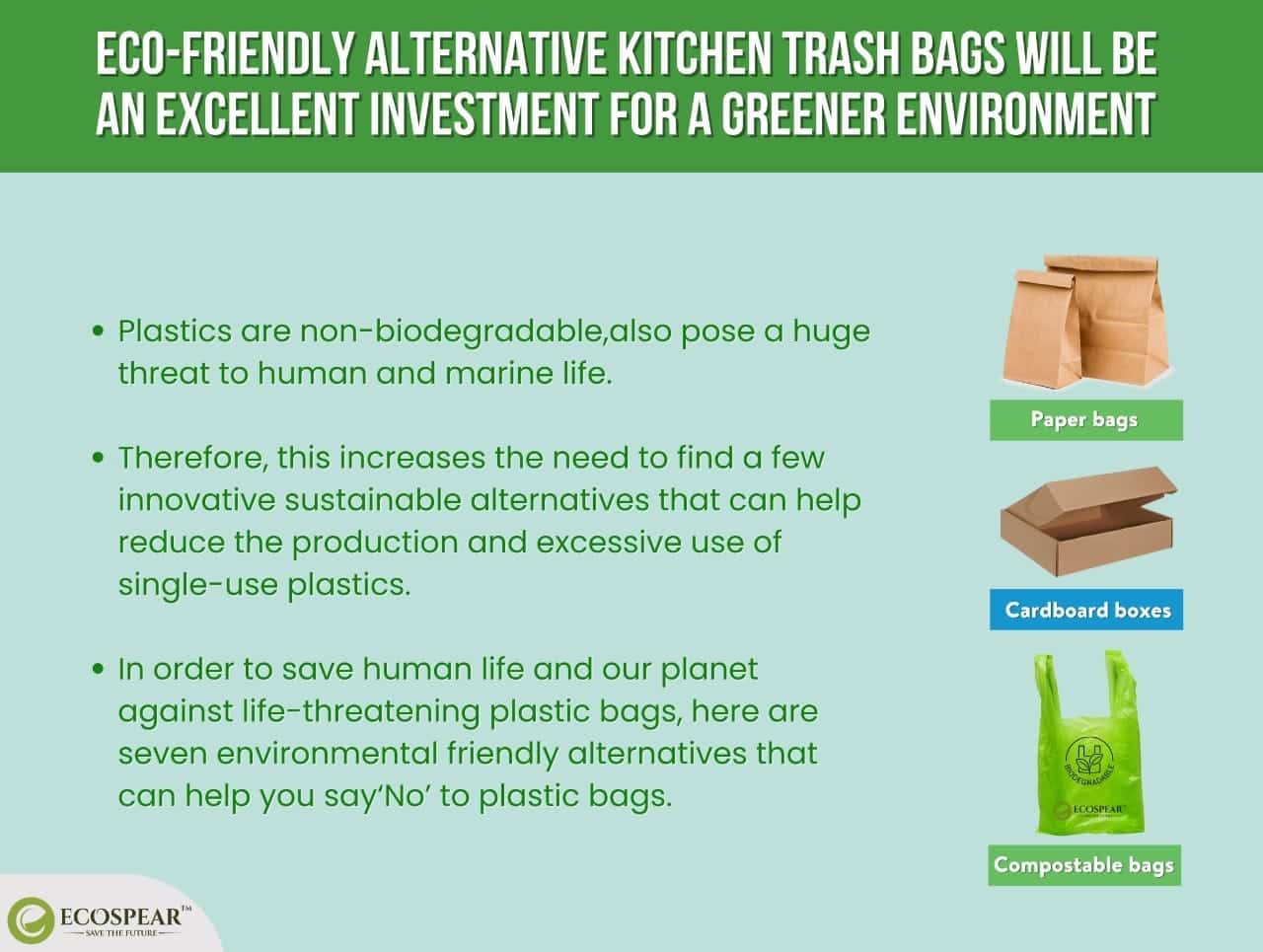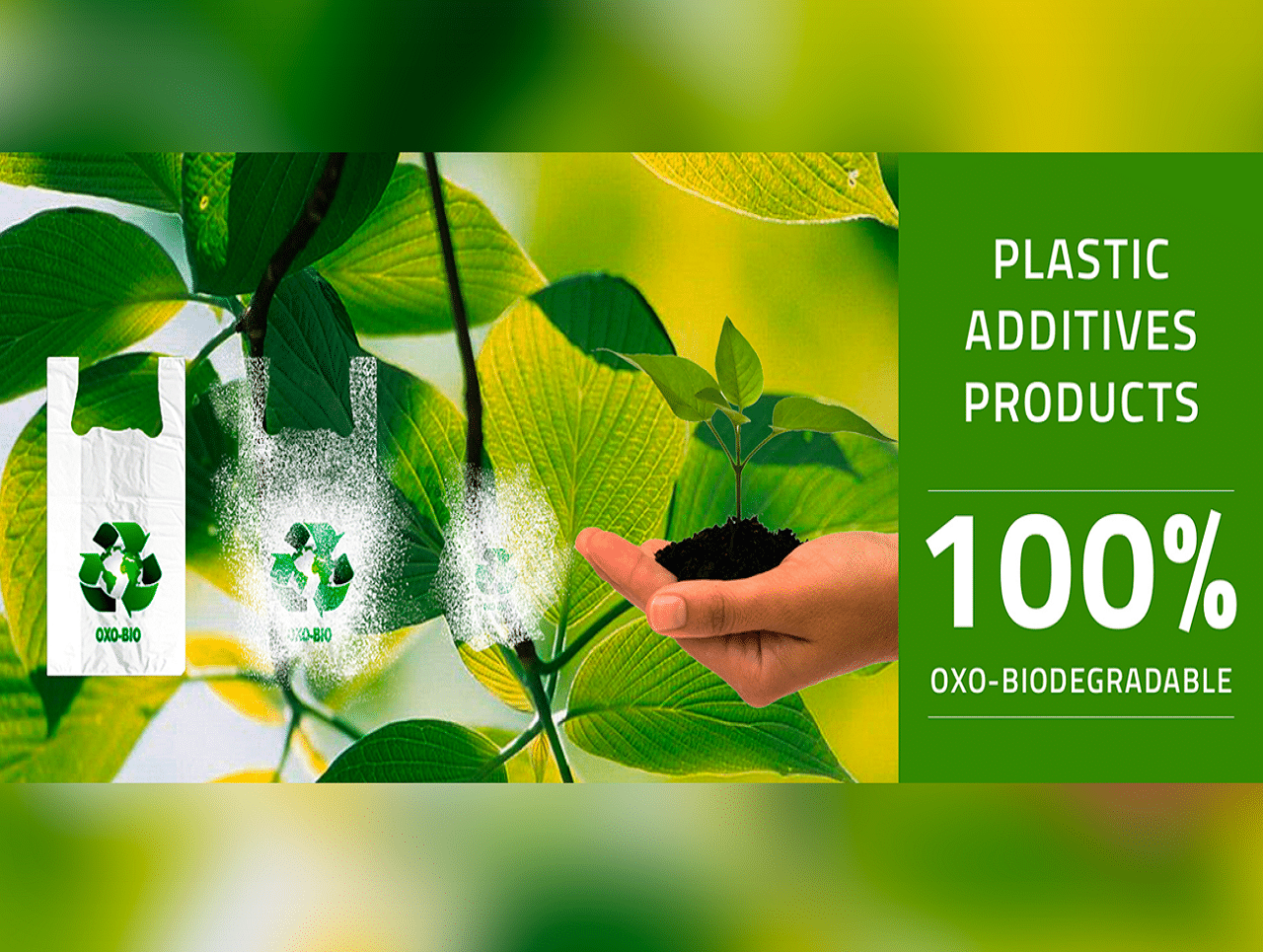Does it ever strike you as bizarre to purchase plastic kitchen trash bags made for daily purposes? After all, plastics are detrimental to the environment. Before 1950, nobody had access to plastic bags, but folks still managed to dispose of their garbage just fine.
While we can’t control the packaging of a convenience store, we can certainly maintain the type of bags we use at our homes. We know the black, white, or vanilla-scented plastic trash bags might make a trash day less cringe-worthy, but it’s also sending our homestead to the landfills. These trash bags are usually made from polyethylene, meaning they’re produced by charring fossil fuels and take centuries to decompose.
Since the early 1950s, some 8.3 million tons of plastic have been produced worldwide. Half of this amount was made alone in the last 15 years. And by 2050, the number is expected to double.
What Is the Problem with Plastic Trash Bags?
There are so many reasons why plastics are destructive to the environment:It Takes a Lot of Energy to Manufacture Plastics:
The plastic manufacturing industry makes up eight percent of the world’s oil production. For every 1 kilogram of plastic, 6 kilograms of carbon dioxide is released into the atmosphere. The numbers seem marginal, but the fingers add up quickly.Plastic Lasts Forever:
Plastic kitchen trash bags do not disintegrate like the stuff they carry. When plastics break down, they revive as microplastics that retain their deadly properties. Microplastics find their way to the earth or sea and get ingested by the animals of the ecosystem. Slowly, they make their way up the food chain, and we consume them.Plastics Break down into Potentially Harmful Elements:
Did you know some chemicals added to plastics have been reported to disrupt the hormones in our bodies and cause cancer? Whether you are drinking your coffee or using synthetic fibers– these toxins might enter your body through these media.It’s Harmful to Wildlife:
We have all seen images of seagulls wearing plastic rings and fish underwater caged in plastic bags. Unfortunately, many people continue to let this happen without remorse. Here are some data about the adverse effects of plastics on our daily lives:Americans use 100 billion trash bags annually, which require 12 million barrels of oil to manufacture. The production did not cease, even after the Russia-Ukraine war.
The gas required to produce 14 toxic plastic trash bags is equivalent to the gas needed to travel one mile.
About 35% of the dead leatherback sea turtles have already ingested plastic.
It takes 1,000 years for the plastic to disintegrate in the landfill. Unfortunately, the bags don’t break down completely but instead convert into microplastics that mix with the soil.
A person consumes around 70,000 microplastics on average yearly.
Plastic wastage grows annually by 9%.
Despite the terrifying situation, no vital initiatives were taken to recycle plastic waste. Only 12% of the plastics produced from 1950 were incinerated. And the remaining 79% are either sitting idly in the landfill or finding their way into the oceans. Statistics further show only 9% of these plastics are recyclable. The scenario is similar for Bangladesh. The regular production of plastic kitchen trash bags in various industries of Dhaka and Chattogram made the country one of the significant plastic-polluting countries. So, how can we stop plastic pollution? The solution is, of course, glaringly simple:- Reuse the plastic.
- Stop the production of single-use plastic.
- Find eco-friendly alternatives.
Eco-friendly Plastic kitchen Trash Bags:
Go without a Trash Bag:
Your bins don’t need to have plastic liners. In fact, only some people use a trash liner for its costs. Most trash in our kitchens is from food waste and dry non-recyclables. So, you could easily dump them in the bin without plastic liners. But you must rinse the container regularly to keep it from smelling and hoarding bacteria. However, it’s effortless to implement and won’t cost you anything.Line the Bin with Newspaper:
Try using old newspapers if you’re uncomfortable tossing your kitchen trash directly in the garbage. Newspapers are something we all have in common in a Bangladeshi household. If you have tons of newspapers lying at your place and need to learn how to use them, repurposing them as kitchen trash bags is an excellent idea. Using newspapers as liners is easy and effective. Putting a thick layer of paper will reduce the amount of moisture passed on to the bin. This way, you don’t have to clean the container every day.Paper Bags:
Conventionally paper bags are made from trees, and their manufacturing process involves pollution. However, they are more eco-friendly since most paper bags are 100% recycled. The only issue with these bags is they need to be leak-proof. So, if you’re tossing wet waste in the bin, line the container with newspapers first.Repurpose the Kitchen Trash Bags:
Yes, it sounds crazy, but you can repurpose the bags you already use for your waste. These bags are robust and washable, and you can easily use these for weeks unless they are torn due to external pressure. The process sounds repelling, but it’s a small step that you can abide by to protect your planet.Repurpose the Packaging:
Think of the other bags you have in your house:- The food packaging.
- The retail store bags.
- The shopping bags.





